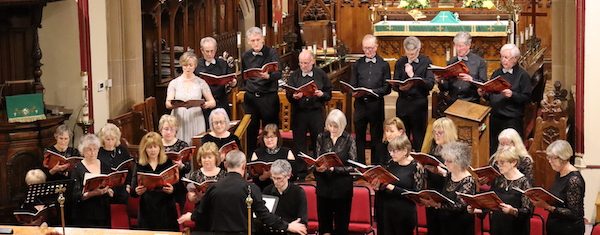Programme Notes
Majora Canamus (Virgil)
And without controversy, great is the mystery of Godliness:
God was manifested in the Flesh, justified by the Spirit, seen of Angels, preached among the Gentiles, believed on in the world, received up in glory.
In whom are hid all the Treasures of Wisdom and Knowledge. (I Timothy iii, Colossians ii)
Those words were written by Jennens, the librettist of Messiah, as a preface to the words books for the first performance in April 1742 in Dublin. They were repeated on the words books published in London 1749-1759.
When Handel arrived in 1712 for his second, and what became his more or less permanent stay in London, the musical society of England was under the strong influence of Italian opera. From 1711 to 1737, his output was very much dominated by the stream of operas he was producing. By the spring of 1741, after the miserable failure of two operas, Handel was seriously thinking of returning to Germany. However, his efforts turned predominantly to oratorio as a result of the change in contemporary fashion, and the financial difficulties in which he had landed himself, now that opera no longer “paid”.
His librettist, Jennens, came up with an idea to revive Handel’s enthusiasm. The oratorio was specifically designed to be presented in Holy Week, when the theatres were closed, and a specially arranged “benefit” performance would receive a full house. Handel composed the work in 23 days, between 22nd August and 14th September 1741.
In November 1741, Handel set off for Dublin, where he had been invited to give a series of charitable concerts. The music included a repeat of Il Penseroso, Alexander’s Feast and Imeneo. In addition Messiah was performed for the first time on 13th April. It was very well received and an instant success.
Despite this success, when he returned to London with it in the Spring of 1742, the work fell flat. The reception at Covent Garden Theatre in March 1743 was very mixed. There was strong criticism of using a theatre, and theatrical soloists, in a work based on a Biblical text, and which dealt with the central themes of the Christian faith. Jennens himself expressed dissatisfaction with parts of the work. It was not until the subscription concerts for the Foundling Hospital began in 1750 that Messiah’s position in English musical life and history became assured.
Jennen’s libretto has a fine structure, which give the oratorio a sense of cohesion and direction. The whole work is a magnificent conception.
Part One up to For unto us, acts as a sort of prologue – setting out the main promises concerning the Messiah, and the promise of His kingdom for Jew and Gentile alike. Then follows the only actual narrative section – the Angel’s announcement to the shepherds. Part One concludes with reference to Christ’s entry into Jerusalem.
Part Two begins with reflecting on Christ’s suffering and atonement for mankind. Momentum gathers – after the Resurrection (alluded to in Lift up your heads), the Ascension, the Apostles’ proclamation of the Gospel, worldly resistance and finally, ultimate triumph, all follow in quick succession.
Part Three forms an epilogue, dealing with the promise of resurrection and eternal life.
Amadeus: the Singers
Soprano/Alto
Ros Bramwell
Lindsey Davies
Maggie Flodman
Hilary Hewitt
Gill Holroyd
Rosalind McGonagle
Elsbeth Morton
Alison Powell
Avril Shimmin
Karen Stark
Liz White
Pat Williams
Tenor/Bass
Michael Broom
Simon Cleaver
John Cosgrove
Hugh Daglish
Colin Dryden
David Knifton
Trevor Powell
Mike Smithson
Alan Whiteley
We are very pleased today to be joined by:
Elizabeth O’Callaghan, Stephanie Dunning
unable to sing with us today:
Linda Carr, Val Daglish, Mavis Kilby, Geraldine McConachy, Una Seavers, Caroline Speakman, Wendy Thorpe, Judith Welch, Brian Lee
Liverpool Concert Orchestra
Jem Bradley, Richard Wilde, Jayne Hughes violin
Pat Naylor viola
Ilona Hepburn, Lucy Hepburn cello
Nigel Bromiley double bass
Hilary Duncombe, Anna Powell oboe
Paul Thomas, Dominic Wearne trumpet
Trevor Bartlett timpani
Richard Lea continuo
